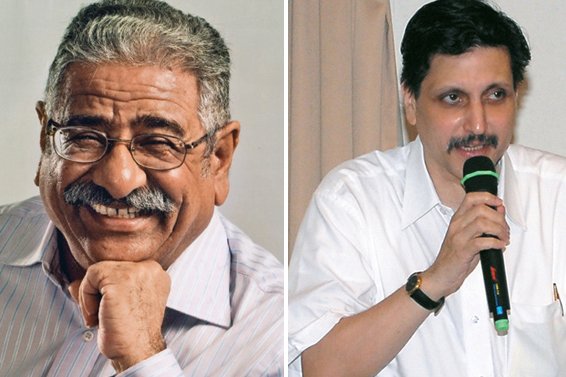SRI LANKAN PARSIS FACING EXTINCTION?
By Nilika de Silva
In the mid-twentieth century there were more than 300 of them. Today the local Parsi comunity has dwindled to about 45. The sad reality is that nothing can really be done to ensure that Lanka’s small but eminent Parsi community will continue to enrich Sri Lanka’s development in the future as they have done in the past four centuries. Conversion is not allowed by the Parsi community in Sri Lanka. And a woman if she marries out of the community cannot expect her children to be accepted into the Parsi community. These are the main reasons for the diminishing numbers of Parsis in Sri Lanka.
A unique community, the Parsis of Sri Lanka have retained a pure strain of those very first people who migrated from Pars (ancient Persia) when threatened by the religious empire building Arab world. Having first settled down in Gujarat, they went on to set sail and venture forth for the sake of commercial enterprise.
Pestonjee, Choksy, Captain, Jilla, Billimoria, Rustomjee, Jevunjee, Dadabhoy, Barucha….. these Parsi names ring many bells. The Pestonjees and Captains in the field of commerce, the Choksys in the legal world, Jilla, in the field of Guiding, Billimoria in Scouting, each in his or her chosen field has carved out a niche, making those rare Parsi names household ones in this country.
It was Soli Captain, for instance, who met the costs for Sri Lanka’s first Cancer Hospice, Dr. Jamshed Dadabhoy who was renowned as the Chief Eye Surgeon of the Colombo Eye Hospital, his niece Roshan, (later Peiris) now of The Sunday Times who was the first woman Editor of the Observer, well known architect Jamshed Nilagriya and Jimmy Barucha, renowned broadcaster. These are but a handful of the Parsis who made it to the top.
Parsi traditions and culture in Sri Lanka are not widely known. The naming of a Parsi baby, for instance, is according to the date and time of birth. A letter is chosen and depending on this letter a Parsi name is selected.
A Parsi child’s initiation into Zoroastrianism (the Parsi religion) or confirmation takes place between the ages of seven and fifteen years. It is at this point that the children will receive the sacred white garment ‘Sudreh’ and the sacred girdle ‘Kusti’.
Holy water or bull urine which has been blessed through prayer, is a very important aspect of ceremony among the Parsi people. At confirmation, at marriage and even in the funeral rituals the holy water is used in a purification rite. Although today marriage ceremonies take place even in five star hotels, orthodox Zoroastrians prefer marriage ceremonies to take place in the temple, explained Reverend Sohrab Panthaky.
Reverend Panthaky also explained that today more than 50 percent of the marriages take place out of the community, another reason for the dwindling numbers in the Parsi population of Sri Lanka.
Although the Parsis of Sri Lanka live in accordance with the Indian Parsi lifestyle they have been forced to make certain changes. Unlike in India, the Tower of Silence where a Parsi is placed after death does not exist in Sri Lanka and an alternative arrangement of burial has replaced this custom.
The funeral ceremony is usually conducted within 24 hours of death and burial takes place at the Parsi cemetery at Jawatte in Colombo. Fire, a symbol of purity to the Parsis, is lit immediately when a person dies and the lamp is placed near the body of the departed soul.
A unique feature in a Parsi funeral is the employing of a ‘four-eyed dog’ ( a dog with two markings above its eyes) which is lead up to the corpse. If the dog turns away from the deceased this serves as a final test to ensure that the person is dead, Mr. P. N. Pestonjee explained.
However, it is believed that for four days the soul will remain in this world, and on the fourth day after burial, the family meet for lunch.
The Parsi Club which seeks to keep the Parsi community together engages in annual activities centred around fellowship. The President of the organisation is Mrs. Aban Pestonjee, the Managing Director of Abans Ltd.
“The Parsi Club has gatherings three times an year,” its secretary Ms. Perin Captain said. “These are on the Prophet’s Birthday, the Club birthday and on March 21, each year. These take the form of a dinner and also some games,” Ms. Captain added.





